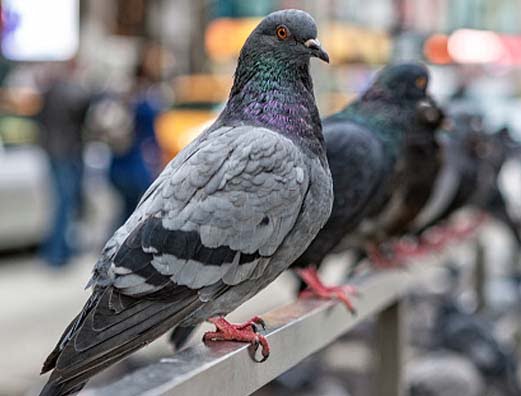Unlike rat and mice poisons which can be precisely and safely targeted with the use of bait stations, there’s no way of poisoning pigeons without also poisoning other birds. Pigeon poisons are not commercially available, and are hardly ever used even by professionals.
Even if there was a poison which only affected pigeons, it would be an almost useless method for reducing their population.
This is because the amount that pigeons breed depends on the availability of food. If you reduce the population of pigeons, the remaining pigeons will have more food, causing them to increase their breeding and rapidly return to their previous numbers.
Unfortunately, the food source might not be within your control as pigeons are quite happy to feed elsewhere and return to your property to roost and nest.
You should get in touch with your neighbours, nearby businesses or your local authority if poor waste management close to your property is providing pigeons with a food source.
Along with depriving pigeons of food, you can also use pigeon repellent equipment to make your property unappealing for them. Pigeon spiking, wires and nets are effective at dissuading pigeons from roosting or nesting.












